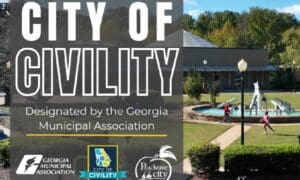A Jonesboro man will serve 10 years in prison for his part in a fraud scheme relating to phony emissions tests issued at a north Fayette County business.
DeAngelo Lacosta Smith, 39, of Goswell Drive, Jonesboro, entered a guilty plea to Fayette County Superior Court Judge Robert M. Crawford Monday morning, according to Fayette County Assistant District Attorney Robert W. Smith, Jr.
Beyond the 10-year prison sentence, DeAngelo Smith was fined $25,000 and will serve an additional 10 years on probation following his release from prison.
DeAngelo Smith is one of 14 co-defendants in the case, all charged with various counts of violating the Georgia racketeering influenced and corrupt organizations act, commonly known as RICO charges. He pled guilty to all three RICO charges he was indicted on, prosecutors said.
Also Monday, co-defendant Joe Douglas of Kingston Road, Atlanta pled guilty to a reduced charge of computer forgery and was sentenced by Crawford to two years in prison followed by eight years’ probation and a $2,500 fine.
Two other co-defendants pled guilty to reduced charges on Feb. 5: Markaila Patricia Ann Caesar, 20, of Goswell Drive in Jonesboro and Michael Keith Knight, 40, of Foxbury Drive, Riverdale. Caesar pled guilty to computer-related forgery and got 270 days in prison, the remainder of a two-year sentence on probation and a $1,500 fine. Knight pled guilty to two counts of computer fraud and was sentenced to eight years’ probation with a $1,500 fine.
Knight is expected to testify in the trial against the other defendants in the case, which is scheduled for Sept. 3 with the remaining 10 co-defendants.
The charges stemmed from a lengthy investigation conducted by the Environmental Protection Division of the Georgia Department of Natural Resources on Smith Emissions located at 101 Kenwood Road, just off Ga. Highway 85 North.
According to the indictment filed in the case, the phony tests were rung up over a period of three months. In some cases, the defendants are accused of using an older car as a “surrogate” for a vehicle that would not pass an emissions inspection and thus would likely require costly repairs.
Court documents do not outline how much money was pocketed for the bogus inspections, whose results were transmitted electronically to DNR in a bid to make it appear as if the vehicles passed emissions inspections when they almost certainly would not have, officials indicated in arrest warrants.
Prosecutors do not know exactly how much money was made in the scam.











Leave a Comment
You must be logged in to post a comment.